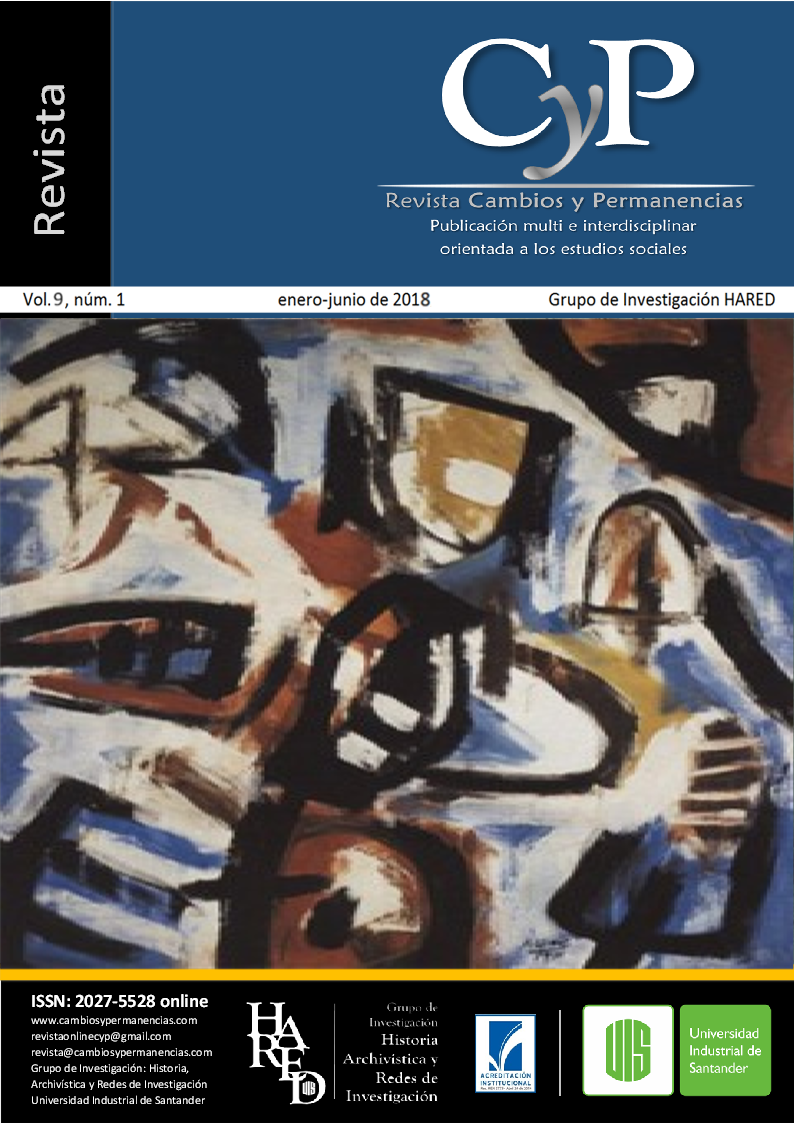The “Great Man” and the Construction of the African Identity in A Bend in the River by V.S. Naipaul
Published 2018-06-01
Keywords
- Identity,
- V.S. Naipaul,
- race,
- Cultural Studies,
- charism
- postcoloniality,
- multidisciplinarity ...More
How to Cite
Abstract
At A bend in the river V.S. Naipaul tells the story of an African postcolonial country after a coup, which is reconfigured through the charisma and public policies of their president, who is labeled as the "Great Man". A newly independent country, with minorities of foreign descent and African natives in dispute, seeks to create a national identity, which will be developed throughout the novel. This article proposes the multidisciplinary analysis of the Naipaul’s novel under the tutelage of Cultural Studies and through the concept of Charismatic Domination by Max Weber, the notions of culture and culturalism by Arjun Appadurai, the postulates about immigration by Will Kymlicka and the Race principle by Stuart Hall. It also give a glimpse of Postcolonial Theory and African Dictatorships.
Downloads
References
Edgerton, R. (2002). The Troubled Heart of Africa: A History of Congo. Nueva York: St. Martin’s Press.
Ferim, V. (2017). “Dictatorships in Africa” en Conflict Trends, 28-35. Recuperado de http://www.academia.edu/4657478/Dictatorships_in_Africa
Hall, S. (1997) Race, The Floating Signifier. Massachusset: Media Education Foundation.
Harrow, K. (1991). An African reading of Naipaul’s A Bend in the River. Journal of South Asian Literature, 26(1/2), pp. 322-336. Recuperado de http://www.jstor.org/stable/40873257
Kubayanda, J. (1990). Introduction: Dictatorship, Oppression, and New Realism. Research in African Literatures, 21(2), pp. 5-11. Recuperado de http://www.jstor.org/stable/3819275
Kymlica, W. (1996). Ciudadanía multicultural. Barcelona: Paidós.
Mezzadra, S., Spivak, G., Hall, S., Chakrabarty, D., Mbembe, A.,Young, R., y Rahola, F. (2008). Estudios Poscoloniales. Ensayos Fundamentales. Madrid: Traficantes de sueños.
Moll, N. (2002). “Imágenes del Otro. La literatura y los estudios interculturales” en Introducción a la literatura comparada. Barcelona: Crítica.
Naipaul, V.S. (1980) Un recodo en el río. México: Lasser Press Mexicana.
Raja, M. (2005). Reading the Postcolony in the Center: V.S. Naipauls’s A bend in the River. South Asian Review: Special Issue. on V.S. Naipaul. 26(1), pp. 224-239.
Rao Mohan, C. (2004). Postcolonial Situation in the Novels of V.S. Naipaul. Delhi: Atlantic Publishers and distributors.
Sharp, G. (2003). De la Dictadura a la Democracia. Un sistema conceptual para la liberación. Boston: Instituto Albert Einstein.
Spivak, G. (1998). “¿Puede hablar el sujeto subalterno?” en Memoria Académica. La Plata: Universidad Nacional de la Plata.
Theroux, P. (2002). La sombra de Naipaul. Biografía de una amistad. Buenos Aires: Ediciones B.
Tixier, G. (1967). Los gobiernos militares en África negra. Revista de Estudios Políticos, 156, pp. 99-118. Recuperado de https://dialnet.unirioja.es/servlet/articulo?codigo=2081479
Vincent, W. (1991). Naipaul’s A Bend in the River: Time, History and ‘Africa. Journal of South Asian Literature, 26(1/2), pp. 337-349. Recuperado de http://www.jstor.org/stable/40873258
Weber, M. (2002). Economía y sociedad. México: Fondo de Cultura Económica.
Weeks, S. (1981). A Sensitive Novel about Expatriate Life in Central Africa. Africa Today, 28(1), pp. 64-64. Recuperado de http://www.jstor.org/stable/4185983


